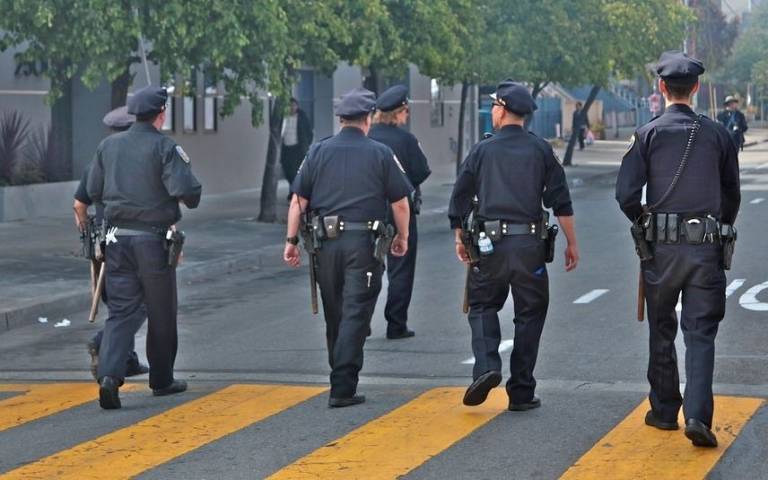Mental health issues ‘substantial health concern’ among police internationally
22 May 2020
Mental health issues are a “substantial health concern” among police officers, with around one in four potentially drinking at hazardous levels, and around one in 10 meeting the criteria for anxiety disorder and suicidal thoughts, finds a UCL-led study.

The pooled data analysis of available international evidence, published online today in Occupational & Environmental Medicine, also found that one in seven officers meet criteria for post-traumatic stress disorder and depression.
Lead author Shabeer Syed, who completed the study as part of an MSc in UCL Psychiatry, said: “By identifying the high prevalence of mental health issues among police officers, our findings emphasise the need for effective treatment and monitoring programmes, as well as additional funding initiatives for police wellbeing to match the preventive efforts available for other high-risk groups.”
Other published studies have suggested that first responders run a higher risk of mental health issues than the general public. But it was not clear how common mental health issues are among police officers, or what the risk factors for these might be.
This is despite the fact that the nature of the work means that the police are uniquely exposed to extreme violence and death while often running the gauntlet of public distrust and disparagement, say the researchers.
To try and plug this knowledge gap, the researchers trawled 16 research databases for relevant studies published between 1980 and October 2019.
They found 67 studies which met their inclusion criteria of involving at least 100 active police professionals and the use of validated measures to assess specific aspects of mental ill health.
The studies included a total of 272,463 police officers from 24 countries and covered PTSD, depression, substance misuse, anxiety disorder, and suicidal thoughts (ideation). Most of the studies came from North America (46%), Europe (28%), and Australia (10%) and primarily featured male officers with an average age of 39, carrying out general duties.
Pooled analysis of the data indicated that the estimated prevalence of mental health issues among police officers was substantial, and more than double that many times reported in previous studies of first responders.
Around one in four (just under 26%) screened positive for hazardous drinking, while some of those (one in 20 or 5% of the total sample) would be considered to be drinking at harmful levels or to be alcohol dependent. The authors classified two levels of alcohol misuse – hazardous being the more moderate level, and harmful drinking or alcohol dependence is more severe.
One in seven officers met the criteria for PTSD (14%) or depression (14.5%). Around one in 10 met the criteria for anxiety disorder (9.5%) and suicidal thoughts (8.5%).
Low levels of peer support, higher levels of job stress, and poor (avoidant) coping strategies were all strong risk factors for mental health issues, the data analysis suggested. Female sex was also a consistent risk factor for poorer mental health.
The researchers acknowledge that the study methods and designs varied widely, and that many of the included studies were observational and relied on subjective symptom reporting.
Senior author Dr Jo Billings (UCL Psychiatry) said: “Our findings show there is an unmet need for better mental health support for police officers, who are a high-risk group experiencing concerning levels of mental health problems.”
Co-author Dr Sarah Rowe (UCL Psychiatry) added: “Further research is needed to evaluate programmes that may be beneficial for police officers, such as interventions that address stress and peer support, while taking into account differences between genders and cultures.”
Links
- Research paper in Occupational & Environmental Medicine
- Dr Jo Billings’s academic profile
- Dr Sarah Rowe’s academic profile
- UCL Psychiatry
Source
BMJ
Image
- Police officers in San Francisco. Source: torbakhopper on Flickr
Media contact
Chris Lane
Tel: +44 (0)20 7679 9222
Email: chris.lane [at] ucl.ac.uk
 Close
Close

